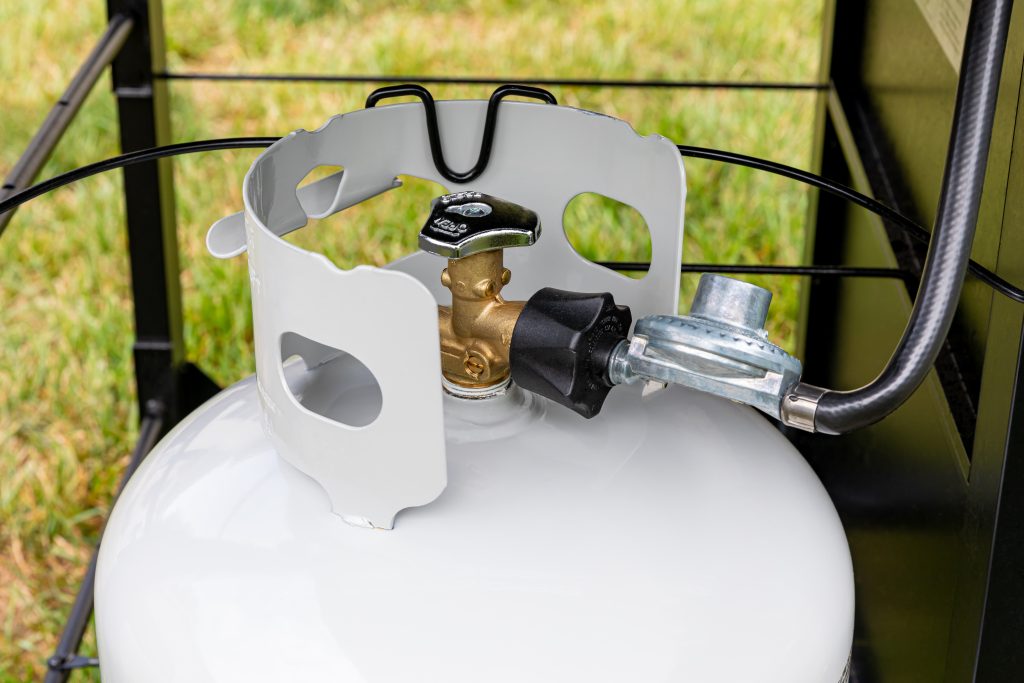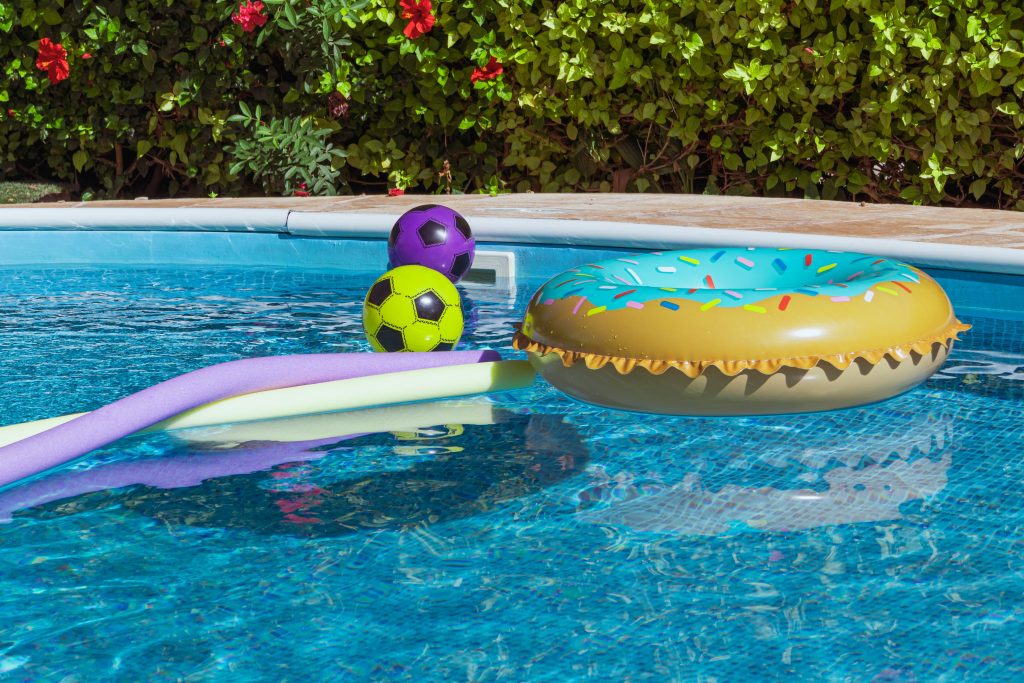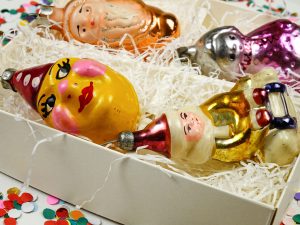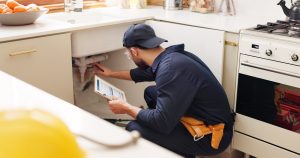The 4th of July is fun, the blazing sun can, unfortunately, lead to some serious safety issues. That’s why knowing what not to store in the summer heat is important. It’s info that can protect your family and ensure your holiday isn’t interrupted by a trip to the emergency room. NSA Storage put together the following information-packed article. If you’re keen to learn about 4th of July safety, read on!
What’s the Problem with Summer Heat?
Many folks don’t realize that their garages, backyard sheds, and outdoor storage units can become extremely hot in summertime. For example, it’s not unusual for temperatures to rise above 120°F or higher on a hot, sunny summer day.
Storing the wrong items in this extreme heat is risky because it can cause a fire or even an explosion. Fireworks and gasoline are, after all, explosive by design. This can lead to damage to your home or, even worse, injuries to you, your family, and your guests.
At the very least, extreme heat can damage or destroy many summer-related household items, and dampen your holiday fun. That’s why, when preparing for your Independence Day celebration, being aware of extreme heat, and storing certain things correctly, is important.
Summer Items that Should Never be Stored in a High Heat Environment
There’s no denying that some things just don’t do well in extreme heat. Things made of plastic can melt, for example, while others might warp, crack, or leak. Other summer items that are more volatile can even explode when exposed to extreme summer heat.
Below is a detailed list of items you should never store in a high-heat environment and why:
1. Propane Gas Tanks
There are literally millions of propane gas tanks being used in America during the 4th of July. While convenient and safe to use, these tanks can leak or even explode if exposed to extreme heat. For that reason, you should never store a propane gas tank in these places:

- An outdoor shed exposed directly to the sun
- The trunk of a car
- The back of a pickup truck
- The attic
- Near a furnace or hot water heater
2. Fireworks
For many, fireworks are the most fun part of the 4th of July! They’re also, unfortunately, one of the biggest causes of holiday accidents and injuries.
The reason why is simple; fireworks are extremely flammable and made to explode. That includes cherry bombs, firecrackers, bottle rockets and many more. For these reasons, fireworks should always:
- Be stored in a cool, dry place
- Be protected from the sun at all times
- Be kept away from any heat sources like a BBQ grill, HVAC system, water heater, furnace, fire pit, fireplace, etc.
- Be kept safely away from small children
3. Toys and Tools Made from Plastic, Rubber, or Vinyl
Extreme heat can cause items made from vinyl, plastic, or rubber to badly melt or warp. It can also cause different items to stick together, tear, or become brittle and weak. Below are some excellent tips for storing plastic, rubber, and vinyl items safely:

- Store anything made from these three materials in a cool place.
- Also be sure to store these items in a dry place to prevent mold and mildew, which can discolor, damage, or even ruin plastics and vinyl.
- Never store these items in direct sunlight, or in hot sheds.
Below is a list of the most common vinyl, plastic, and rubber items made for summer. All need to be protected from extreme heat, including:
- Garden hoses
- Vinyl welcome mats
- Inflatable kiddie pools
- Pool floats and rafts
- Swim rings and Floaties
- Pool liners (if not installed yet)
- Rubber car mats
- Toys made a vinyl or rubber like dodgeballs, kick balls and bouncy balls
- Any shoes with rubber souls
- Yoga Mats
- Vinyl tablecloths
- Jumper cables
- Rubber gloves
- Plastic Buckets
4. Paint and Paint Thinners
You might not think of paint or paint dinners as dangerous but, unfortunately, they are. For example, paint thinner, a solvent, is extremely flammable. Cans of spray paint are the same and can explode under the pressure caused by extreme heat.
For this reason, it’s best to store paint and paint thinners indoors in a space that’s temperature controlled. The garage, mud room, or basement are good choices. An outdoor shed, not so much.
5. Electronic Items
Many electronic items have batteries and batteries do not do well under extreme heat circumstances. Some types of batteries can leak acid and, under extreme conditions, catch fire.
Extreme heat can also damage the wires, screens and other parts of your electronic tchotchkes, including speakers, cell phones, oscillating fans, computers, laptops, and more. For these reasons, storing your electronics in a cool, dry place is a must.
6. Perishable Foods
While a can of vegetables or a jar of tomato sauce typically won’t explode under extreme heat, it will spoil. The reason why is that heat speeds up the spoilage process and can even cause some cans to swell and deform.
Like many of the other items on this list, always store perishable foods and a cool, dry place. The attic and basement are not a good choice, and neither is an outdoor shed.
Safer Storage: Where Should You Store to Avoid Heat Risks?
Now that we’ve talked about what not to store in extreme heat, let’s talk about better storage options. There’s probably a cool, dry place in your home, of course, but you should also consider:
- Insulated Cabinets in your Garage– These are great for chemicals, cleaners, paints, and other home maintenance items.
- Coolers and Insulated Boxes– Sure, these are great for food. However, you also can use them to store fireworks and other items safely. Be sure to crack the lid open slightly for airflow.
- The Basement– If you’re lucky enough to have a basement, be sure to store a lot of these items there for 4th of July safety.
- Your Laundry Room– Convenient and much safer than, for example, a backyard shed when talking about heat sensitive items.
- A Climate-Controlled Storage Unit– These are specialized storage units you can rent on a month-to-month basis. They keep the temperature and humidity inside stable throughout the year, protecting your things from extreme heat and cold. If you have a lot of things you need to protect from the summer heat, a climate-controlled storage unit is a smart choice.
Final Thoughts about Storing Summer Items Safely During the 4th of July
Independence Day is one of the most beloved holidays in the United States, celebrated by millions annually. We hope the tips and advice given today keep you, your family, and your friends safe, no matter where or how you’re celebrating.
At NSA Storage, we see customers storing summer-related items all the time—although never flammables, please. If you want to keep your summer-related items in good shape for many seasons, renting a storage unit is a safe, secure choice. You can reserve a storage unit online quickly and easily. Once you do, it will be ready when you arrive with stuff to store safely and conveniently. Until then, we wish everyone a safe, happy, and fantastic 4th of July!





